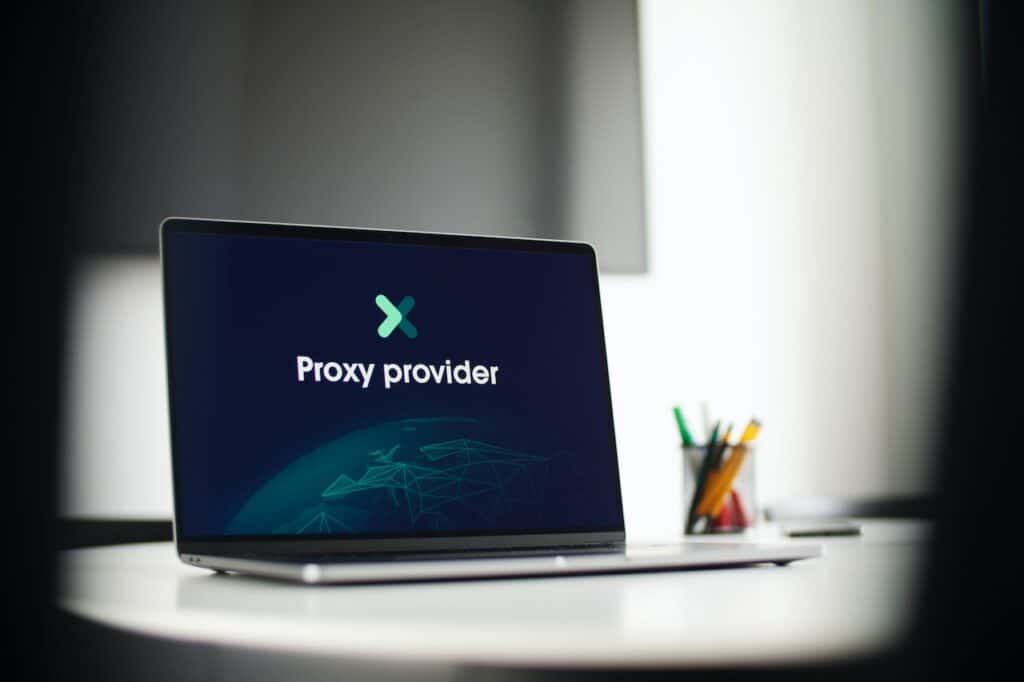Individuals and companies constantly use web scraping for various purposes and different needs. It’s a powerful tool that can collect and analyze extensive sets of internet data. However, it can pose security, privacy, and anonymity risks, as web scraping can overload websites and open up a chest of issues.
It’s where proxies come into play. They offer various advantages to web scrapers and make their tasks much quicker and easier. Moreover, a particular type called a private proxy can take web scraping even further. With private proxy servers, scrapers can secure their anonymity, security, and reliability while finishing their tasks. They can collect data with confidence.
In this article, you’ll learn more about web scraping, proxy servers, and the different types that exist. Discover how to use private proxies to your advantage when collecting data and why they’re the best for web scraping.
Contents
What is web scraping?
Web scraping means extracting website data, structuring it, and storing it for analysis automatically. Individuals and corporations use it to gather information from various websites. The process is automated, and people use either code or specialized scraping software.
Scrapers use extracted data for data analysis, comparing prices, market research, monitoring competing brands, etc. You can use web scraping to gather product descriptions, prices, reviews, and other similar information. It can lead to better marketing and business decisions overall.
It’s important to note that many websites don’t allow automated web scraping and data extraction. These actions can be unethical and lead to legal issues. To avoid those, either ask for permission before scraping or read the website’s terms of service before running any data extraction services.
What is a proxy, and what proxy types exist?
If you imagine yourself as a client and the website you’re trying to access as the server, the proxy would be between the two. It’s a server that acts as an intermediary. It helps mask the client’s IP address and lets the server only see the IP address of the proxy.
Proxies have various purposes, such as bypassing geo-restrictions, improving privacy, and increasing security. Businesses often use them to limit their employees’ network activity by restricting certain website access, and sneaker-coppers use them when buying limited-edition shoes.
“How do you choose the correct proxy?” you might ask. It depends on a couple of factors, such as price, the proxy’s capability, and what you want to achieve with it. When considering these factors, you can choose a proxy server that best suits your needs. Here are several types of proxy servers:
- HTTP proxies – Designed to handle HTTP requests specifically, they aren’t suitable for other activities. Their advantages are security and performance, as they mainly cache web pages and pictures.
- SOCKS proxies – On top of HTTP requests, SOCKS proxies can handle FTP, emails, and a few other network protocols. They’re secure, private, and hide the client’s IP. However, they’re a bit slower than HTTP proxies.
- Transparent proxies – These proxy servers allow the target server to see the client’s IP address, hence the name. They don’t give much privacy or security, but they’re swift. However, hiding the client’s IP isn’t necessary for caching and monitoring internet usage, which is what these proxies’ purpose is.
- Private proxies – Many refer to these as dedicated proxies because single users or smaller groups use the IP addresses. They’re much more secure, anonymous, and reliable, making them perfect for web scraping but also for gaming, marketing, bypassing geo-restrictions, etc.
There are many more types of proxies, each with advantages and disadvantages. However, for web scraping, private proxy servers are the clear winners.
Why use private proxies for web scraping
Although there are a few different proxy types for web scraping, private proxy servers offer the most benefits, so we’ll focus on them. You can easily integrate them into scraping tools and use them with web scraping bots, making them perfect for data gathering.
Private proxy servers allow web scrapers to consistently go past IP bans, letting them switch between IP addresses. They hide the IP address and enable scrapers to go unnoticed while collecting data. That provides a high level of anonymity and security.
They’re pretty fast, which can come in handy when web scraping. Moreover, they can access geo-restricted content. A web scraper can still pull data using a private proxy, even if a website restricts users in a particular area. Here you can find more info about private proxy servers from a market-leading provider.
Conclusion
Using proxies while web scraping provides numerous benefits, such as anonymity, security, and reliability. However, using private proxy servers is even better. With them, scrapers can access even restricted websites. They can avoid IP bans or even detection from the website.
Moreover, these proxies allow data gathering from multiple places. They help scrapers improve their operations and achieve their goals when collecting data. It’s why web scrapers confidently use private proxy servers for these purposes.

